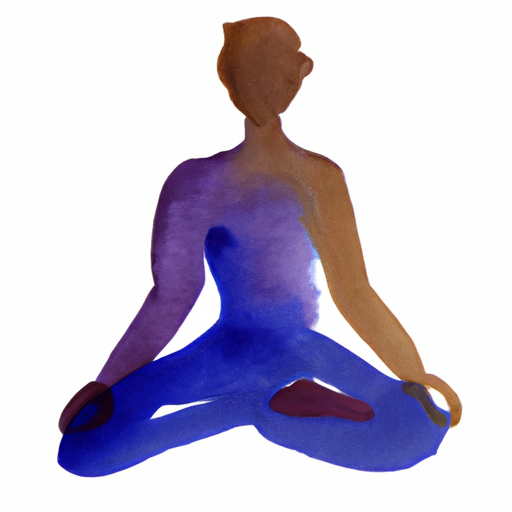In today’s fast-paced world, stress and anxiety have become a common part of our lives. We often find ourselves struggling to stay focused, calm, and relaxed amidst the daily chaos. However, there is a powerful tool that can help us achieve a state of inner peace and tranquility – mindfulness. Mindfulness is the practice of being present in the moment, observing our thoughts and emotions without judgment, and cultivating a sense of awareness. In this article, we’ll explore the benefits of mindfulness, particularly how it can help us achieve relaxation and reduce stress through mindful body relaxation techniques. We’ll also discuss how mindfulness can be a source of motivation and how meditation can improve our mental health and overall well-being. So, let’s begin our journey towards a more mindful and stress-free life.
- 1. "The Power of Mindfulness: How to Achieve Relaxation and Reduce Stress"
- 2. "Finding Motivation through Mindful Body Relaxation Techniques"
- 3. "The Benefits of Meditation: Improving Mental Health and Well-Being through Mindfulness"
1. "The Power of Mindfulness: How to Achieve Relaxation and Reduce Stress"

The Power of Mindfulness: How to Achieve Relaxation and Reduce Stress
In today’s hectic world, stress has become a common problem that affects many people. Whether it’s work-related stress, financial stress, or personal issues, stress can have a negative impact on our mental and physical health. Fortunately, there is a way to reduce stress and achieve relaxation through mindfulness.
Mindfulness is the practice of paying attention to the present moment, without judgment. By focusing on the present moment, we can become more aware of our thoughts, emotions, and bodily sensations. This awareness allows us to identify and acknowledge stressful thoughts and feelings, without getting caught up in them.
One of the most effective ways to achieve mindfulness is through meditation. Meditation involves sitting quietly and focusing on your breathing or a particular sound or phrase. By doing this, you can quiet your mind and reduce the stress and anxiety that often accompany it.
In addition to meditation, there are other mindfulness techniques that can help you achieve relaxation and reduce stress. These include deep breathing exercises, progressive muscle relaxation, and guided imagery.
Deep breathing exercises involve taking slow, deep breaths, and exhaling slowly. This technique can help calm your mind and reduce stress. Progressive muscle relaxation involves tensing and relaxing various muscle groups in your body, one at a time. This technique can help you release tension and achieve relaxation. Guided imagery involves imagining yourself in a peaceful, relaxing environment. This technique can help you reduce stress and achieve a sense of calm.
In conclusion, mindfulness is a powerful tool that can help you achieve relaxation and reduce stress. By practicing mindfulness techniques such as meditation, deep breathing exercises, progressive muscle relaxation, and guided imagery, you can learn to manage stress and improve your overall well-being. So why not give it a try? Incorporating mindfulness into your daily routine can be a motivational and rewarding experience.
2. "Finding Motivation through Mindful Body Relaxation Techniques"

In today’s fast-paced world, it’s easy to get caught up in the hustle and bustle of everyday life. We often find ourselves feeling stressed, anxious, and overwhelmed. However, practicing mindful body relaxation techniques can help to alleviate these negative feelings and provide us with the motivation we need to tackle our daily tasks.
Mindful body relaxation techniques involve focusing your attention on your body and its sensations while intentionally releasing tension and stress. This can be achieved through various techniques such as deep breathing, progressive muscle relaxation, and guided meditation. By regularly practicing these techniques, you can train your mind to let go of negative thoughts and emotions, allowing you to focus on the present moment.
One of the benefits of practicing mindful body relaxation is that it can help to increase your motivation. When you’re feeling overwhelmed, it’s easy to become stuck in a cycle of negative thinking. This can lead to procrastination and a lack of motivation. However, by taking the time to relax your body and clear your mind, you can break free from this cycle and find the motivation you need to tackle your tasks.
Meditation, in particular, has been shown to be an effective tool for increasing motivation. By practicing mindfulness meditation, you can learn to observe your thoughts and emotions without judgment. This can help you to identify any negative thought patterns that may be holding you back and replace them with more positive ones. Additionally, meditation can help to increase your sense of self-awareness, which can lead to a greater understanding of your motivations and values.
In conclusion, practicing mindful body relaxation techniques can provide numerous benefits, including increased motivation. By taking the time to relax your body and focus on the present moment, you can train your mind to let go of negative thoughts and emotions, allowing you to find the motivation you need to tackle your daily tasks. So, why not give it a try? Incorporate mindfulness meditation into your daily routine and see how it can help you to achieve your goals.
3. "The Benefits of Meditation: Improving Mental Health and Well-Being through Mindfulness"

In today’s fast-paced world, stress and anxiety have become a common part of our lives. The constant pressure to perform and succeed can take a toll on our mental and physical health. This is where mindfulness meditation can be a powerful tool to bring balance and calm into our lives.
The practice of mindfulness involves paying attention to the present moment, without judgment or distraction. By focusing on our breath, sensations, and emotions, we can develop a deeper awareness of our thoughts and feelings. This can help us to become more relaxed, centered, and focused in our daily lives.
Research has shown that mindfulness meditation can have a range of benefits for mental health and well-being. For example, a study published in the Journal of Clinical Psychology found that mindfulness-based stress reduction (MBSR) was effective in reducing symptoms of anxiety and depression in patients with chronic pain. Another study published in the Journal of Psychiatric Research found that mindfulness meditation can help to improve overall well-being and quality of life.
One of the key benefits of mindfulness meditation is that it can help to reduce stress and anxiety. When we are stressed, our body goes into a "fight or flight" response, which can lead to a range of physical and emotional symptoms. By practicing mindfulness, we can learn to recognize the signs of stress and respond in a more calm and centered way.
In addition to reducing stress, mindfulness meditation can also help to improve our mood and increase feelings of happiness and well-being. By becoming more aware of our thoughts and emotions, we can learn to cultivate positive feelings and let go of negative ones.
Overall, mindfulness meditation is a powerful tool for improving mental health and well-being. By practicing mindfulness on a regular basis, we can learn to become more present, relaxed, and centered in our daily lives. So why not try incorporating mindfulness meditation into your daily routine and experience the benefits for yourself?
In conclusion, mindfulness is a powerful tool that can help individuals achieve relaxation, reduce stress, and improve their mental health and well-being. By incorporating mindful body relaxation techniques into their daily routine, individuals can find motivation and improve their overall sense of wellness. Additionally, meditation can provide a multitude of benefits, including reducing anxiety and depression and improving cognitive function. By embracing mindfulness and meditation, individuals can take control of their mental health and improve their quality of life. So why not give it a try today and see the positive impact it can have on your life?




